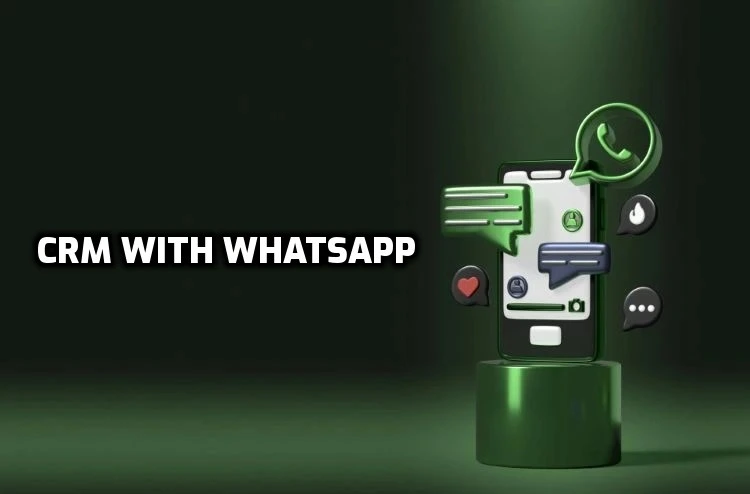In a world where customers can switch to a competitor’s product with just a click and attention spans are shorter than ever, the ability to reach clients directly and quickly is not only advantageous, but also a basic requirement for success. Sales teams and customer success departments across sectors are under increasing pressure to respond quickly, communicate more deeply, and develop stronger relationships. This is the point at which a CRM that integrates with WhatsApp becomes indispensable — enabling real-time, conversational engagement that drives stronger connections.
By merging lead management capabilities with the world’s most popular messaging platform, businesses can now entirely bridge the gap between where their consumers choose to connect and where their vital business data is stored. This connection eliminates the friction that has long plagued sales operations, including fragmented interactions, disjointed customer experiences, laborious data entry, and delayed responses.
A CRM with WhatsApp integration greatly benefits industries built on constant customer or dealer interaction, especially in consumer-facing sectors and regional markets. It is used by auto dealerships to arrange test drives. Manufacturers offer post-purchase assistance and collaborate with dealer networks. Order updates and promotional offers are sent by retail businesses. Service providers handle client concerns and schedule appointments. Educational institutions interact with parents and potential students. The recurring theme? Meeting clients via their preferred mode of contact while keeping all visibility and control via their CRM system.
The rise of WhatsApp in customer communication
WhatsApp’s dominance in global business communication is undeniable. It is available in 180 countries and over 60 languages, and it is utilized by 69% of internet users worldwide (excluding China). WhatsApp Business is currently one of the most commonly used business communication platforms in history, with over 200 million companies using it to engage with clients. The platform produces response rates that are simply unmatched by traditional channels and message open rates that surpass 90%, which is far greater than the average of 20–25% for email. Because WhatsApp connects with clients where they already spend a lot of time, businesses have embraced it for real-time engagement.
Businesses can immediately lower friction in the customer journey by providing a WhatsApp alternative to potential customers instead of requiring them to use new communication tools or go through formal contact procedures. This accessibility is especially helpful for sales teams who want to grab attention while it’s at its highest. Because of its adaptability, the platform is reliable for a range of commercial tasks.
- WhatsApp is used by sales teams to close deals, discuss product details, and qualify leads.
- Support teams use rapid back-and-forth messaging to address client concerns.
- WhatsApp’s capacity to provide quick coordination between distributors, suppliers, and partners is essential to B2B partnerships.
- WhatsApp’s casual yet professional tone is ideal for corporate communication since it is efficient without coming across as impersonal and approachable without being casual.
- WhatsApp’s rich media features are very beneficial for businesses with intricate sales cycles or enduring client connections.
- Sales representatives can immediately share quotations, invoices, contracts, technical specs, product catalogs, and demonstration films in conversation threads. By doing this, the delays caused by “I’ll send that to you via email” promises—which frequently go unmet or get lost in busy inboxes—are eliminated.
Why businesses need CRM with WhatsApp integration: Challenges & benefits
Common challenges without WhatsApp CRM integration
Businesses that use WhatsApp without adequate CRM integration encounter serious operational issues that restrict their efficacy and scalability, despite the platform’s widespread use.
- Missed leads and lost opportunities: Questions can easily fall through the cracks when WhatsApp interactions take place outside of the CRM environment. After business hours, a prospect conversation may be forgotten by morning. Black holes in communication occur when a sales representative takes a sick day or vacation, leaving customers’ messages unanswered. High-value leads may be lost if automated capture and routing aren’t in place since the appropriate team member may not have seen them at the appropriate moment.
- Disjointed customer data: When WhatsApp conversations exist independently of CRM records, sales teams are faced with fragmented information. Other team members won’t know about a sales representative’s in-depth WhatsApp chat regarding a customer’s wants if it isn’t recorded in the CRM. WhatsApp interactions cannot be used by marketing to segment customers. Management is unable to assess the quality of conversations or pinpoint areas in need of training. Incomplete consumer profiles that hinder genuinely customized interaction are the outcome.
- Data entry and manual follow-ups: Sales representatives lose valuable selling time transcribing data from WhatsApp into the CRM in the absence of integration. They have to keep in mind to manually record every discussion, transcribe crucial information, and update lead status—tasks that are time-consuming, prone to mistakes, and infrequently finished. The amount of time available for real client interaction and revenue-generating operations is reduced by this administrative load.
- Lack of visibility between service and sales teams: When discussions take place on separate WhatsApp accounts, managers are unable to keep an eye on team performance. They are unable to view conversion rates or response times. When one team member’s WhatsApp conversations are hidden from other team members, it is impossible for them to work together efficiently. Because customer support representatives are unable to view the history of sales conversations, clients are forced to repeat information they have already given, which can be annoying.
- Issues with compliance and quality control: When communication takes place outside of recorded channels, businesses in regulated industries encounter unique difficulties. Without integration, there would be no way to verify regulatory compliance in customer communications, audit the promises made to customers, or assess the quality of messages.
Benefits of integrating WhatsApp with your CRM
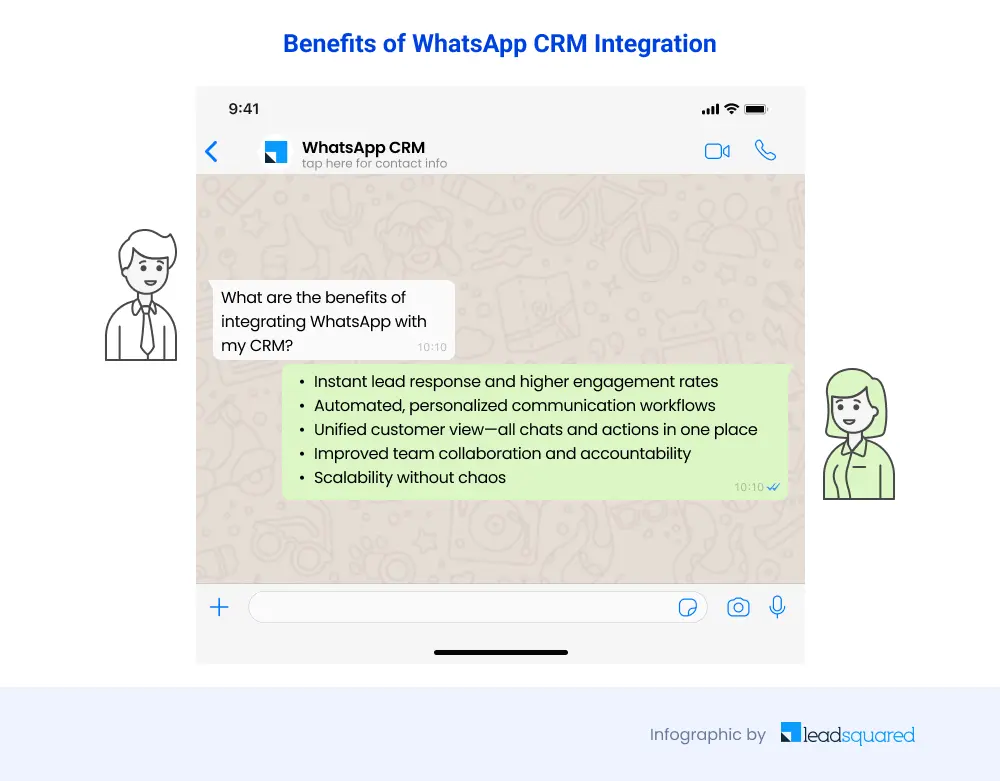
Implementing a WhatsApp integrated CRM addresses these challenges while unlocking powerful capabilities that transform how businesses engage with customers:
- Instant lead response and higher engagement rates: When you integrate WhatsApp with CRM, every incoming message automatically creates or updates a lead record, triggers assignment rules, and notifies the appropriate sales rep instantly. This automation ensures prospects receive immediate attention, dramatically improving engagement rates and conversion likelihood. Studies consistently show that leads contacted within five minutes are exponentially more likely to convert than those contacted even an hour later—WhatsApp CRM integration makes instant response not just possible but automatic.
- Automated, personalized communication workflows: Set up sophisticated automation sequences that send WhatsApp messages based on customer behavior, lead status, or time-based triggers. Welcome new leads with personalized messages, send appointment reminders automatically, follow up on quotes that haven’t been accepted, and nurture long-term prospects with relevant content—all without manual intervention. The system can personalize these messages using CRM data, ensuring each customer feels individually addressed rather than receiving generic broadcasts.
- Unified customer view—all chats and actions in one place: Every WhatsApp conversation is automatically logged against the appropriate customer record in your CRM, creating a comprehensive interaction history. Sales reps see complete context before responding: previous conversations, website behavior, email interactions, past purchases, support tickets, and more. This 360-degree visibility enables truly personalized engagement and ensures continuity even when customers interact with multiple team members over time.
- Improved team collaboration and accountability: When all WhatsApp communication flows through the CRM, managers gain complete visibility into team performance. They can monitor response times, conversation quality, and conversion rates. Team members can collaborate on complex deals by accessing shared conversation histories. Supervisors can provide coaching based on actual conversations rather than anecdotal feedback.
- Scalability without chaos: As your business grows, CRM integration with WhatsApp ensures communication processes scale smoothly. Intelligent routing distributes incoming messages across available team members, preventing bottlenecks. Standardized templates maintain message quality and compliance. Reporting dashboards surface issues before they become critical. What works for ten sales reps can scale to hundreds without breaking down.
How CRM and WhatsApp work together
A CRM with WhatsApp integration creates a seamless bidirectional connection between your customer relationship management system and WhatsApp’s messaging infrastructure. This integration ensures that conversations and customer data flow automatically between both platforms, eliminating manual work and ensuring information consistency.
Here’s how the synchronization typically functions: When a customer or prospect sends a WhatsApp message to your business number, the WhatsApp business CRM immediately captures this interaction. The system checks whether the sender already exists in your database. For new contacts, it automatically creates a lead record populated with their phone number, initial message content, timestamp, and any available profile information. For existing contacts, the message appends to their conversation history within the CRM.
Lead data flows in the opposite direction as well. When sales reps update lead status, add notes, or schedule follow-ups in the CRM, this information is immediately available to anyone accessing that customer’s WhatsApp conversation. Some advanced systems can even trigger WhatsApp messages automatically based on CRM events—when a lead reaches a certain stage, when a deal is won, or when a support ticket is created.
Automation examples in practice:
- New lead notifications: When a prospect initiates contact via WhatsApp, the system instantly notifies the assigned sales rep through their preferred channel (mobile notification, email, or SMS), ensuring rapid response even when they’re not actively monitoring the CRM.
- Quote sharing: After a sales rep prepares a quote in the CRM, they can send it directly through WhatsApp with a single click. The system generates a professionally formatted PDF and delivers it via WhatsApp while logging the action in the CRM automatically.
- Order updates: E-commerce businesses and dealers can automate order status messages through WhatsApp. When an order is confirmed, shipped, out for delivery, or completed in the CRM, customers automatically receive WhatsApp updates without manual intervention.
- Appointment reminders: Schedule appointments in your CRM, and the system automatically sends WhatsApp reminders 24 hours and 1 hour before the scheduled time, reducing no-shows significantly.
- Follow-up sequences: When a lead hasn’t responded within a specified timeframe, automated follow-up messages can be sent via WhatsApp, keeping prospects engaged without requiring sales reps to manually track every conversation.
How to automate customer interactions with WhatsApp and your CRM
Automating customer interactions through WhatsApp CRM integration transforms manual communication into consistent, scalable engagement that works around the clock. Here’s how businesses across industries leverage automation to enhance customer experiences while freeing up teams for high-value activities:
1. Automated lead capture and routing
When prospects send WhatsApp messages, the system automatically creates lead records and routes them to appropriate team members based on predefined rules. Territory-based assignment ensures geographic leads reach local reps, product-specific routing directs inquiries to specialists, and round-robin distribution balances workload. Car dealerships route inquiries based on vehicle type, manufacturers assign leads by dealer territory, and educational institutions direct queries to specific program counselors—all without manual intervention.
2. Welcome messages and instant acknowledgment
Set up automated welcome messages that acknowledge inquiries immediately, even outside business hours. These responses can gather preliminary information through conversational prompts. Healthcare providers ask about appointment preferences and insurance details, service-based businesses inquire about service types and urgency, while car dealerships prompt prospects to share vehicle preferences. This makes CRM with WhatsApp for Car Dealers necessary. The instant acknowledgment makes customers feel heard while automatically qualifying leads.
3. Appointment scheduling and reminders
Automate the entire appointment lifecycle through WhatsApp. Healthcare clinics send automated appointment confirmations with doctor details and preparation instructions, car dealerships confirm test drives with vehicle information, and service businesses share technician profiles and expected arrival times. Reminder messages 24 hours and 1 hour before appointments dramatically reduce no-shows across all industries.
4. Order and service status updates
Keep customers informed with automated status updates throughout their journey. Manufacturing businesses notify dealers when shipments dispatch, car dealerships update buyers on vehicle preparation and delivery timelines, educational institutions send admission decision alerts, and service providers share technician assignment and job completion notifications. This proactive communication reduces inquiry volume and improves satisfaction.
5. Lead nurturing sequences
Build multi-step nurture sequences that engage prospects over time based on their behavior. Car dealerships share financing options and trade-in valuations when leads don’t respond immediately. Educational institutions send course details, scholarship information, and application deadline reminders. Healthcare providers share wellness tips and specialist availability. Manufacturing companies keep dealers engaged with product updates and training resources. These automated sequences ensure consistent engagement without manual tracking.
6. Chatbot-powered initial qualification
Deploy AI-powered chatbots that handle initial inquiries and qualify leads before human intervention. Healthcare chatbots check appointment availability and insurance coverage, car dealership bots provide vehicle specifications and pricing, education chatbots answer admissions questions and program requirements, and service business bots assess problem urgency and schedule visits. When inquiries become complex, they seamlessly transfer to available agents with complete context.
7. Template-based responses for common scenarios
Create pre-approved message templates for frequent situations across industries. Car dealerships use templates for quote delivery and financing pre-approvals, healthcare providers send prescription-ready notifications and lab result availability alerts, educational institutions share application status updates and enrollment confirmations, manufacturers notify dealers about warranty claims and technical bulletins, and service businesses send payment receipts and maintenance reminders. Teams trigger these templates with a single click, ensuring consistent communication.
8. Conditional workflows based on customer actions
Build sophisticated automation that responds dynamically to customer behavior across industries. Car dealerships automatically follow up when prospects view vehicle photos but don’t schedule test drives. Educational institutions send scholarship information when students inquire about tuition costs. Healthcare providers trigger health screening reminders based on patient age and history. Manufacturing businesses alert dealers about complementary products when they order specific items. These conditional workflows enable personalized, context-aware automation at scale.
9. Integration with CRM triggers
Connect WhatsApp automation to CRM events for seamless communication. When healthcare appointments are booked, automatically send preparation instructions via WhatsApp. When car deals close, trigger welcome sequences with service department introductions. When students submit applications, send acknowledgment messages with the next steps. When manufacturing orders are processed, notify dealers of expected delivery dates. This bi-directional integration ensures communication responds automatically to business processes across every industry.
Industry-specific automation examples
- Car dealerships: Automate trade-in valuation requests, financing application status updates, service appointment reminders, and vehicle maintenance alerts based on mileage or time intervals.
- Manufacturing: Automate dealer inventory alerts when stock runs low, product recall notifications, warranty expiration reminders, and technical support ticket status updates.
- Education: Automate application deadline reminders, document submission confirmations, fee payment receipts, class schedule notifications, and exam result alerts.
- Healthcare: Automate prescription refill reminders, vaccination schedule notifications, lab result availability alerts, insurance verification confirmations, and post-visit satisfaction surveys.
- Service-based businesses: Automate quote delivery for requested services, job completion confirmations with before/after photos, payment request messages, seasonal maintenance reminders, and customer review requests.
Also read: WhatsApp Business Messaging Connector – Help & Support
Choosing the best CRM with WhatsApp integration
Core features of a WhatsApp-enabled CRM: What to look for
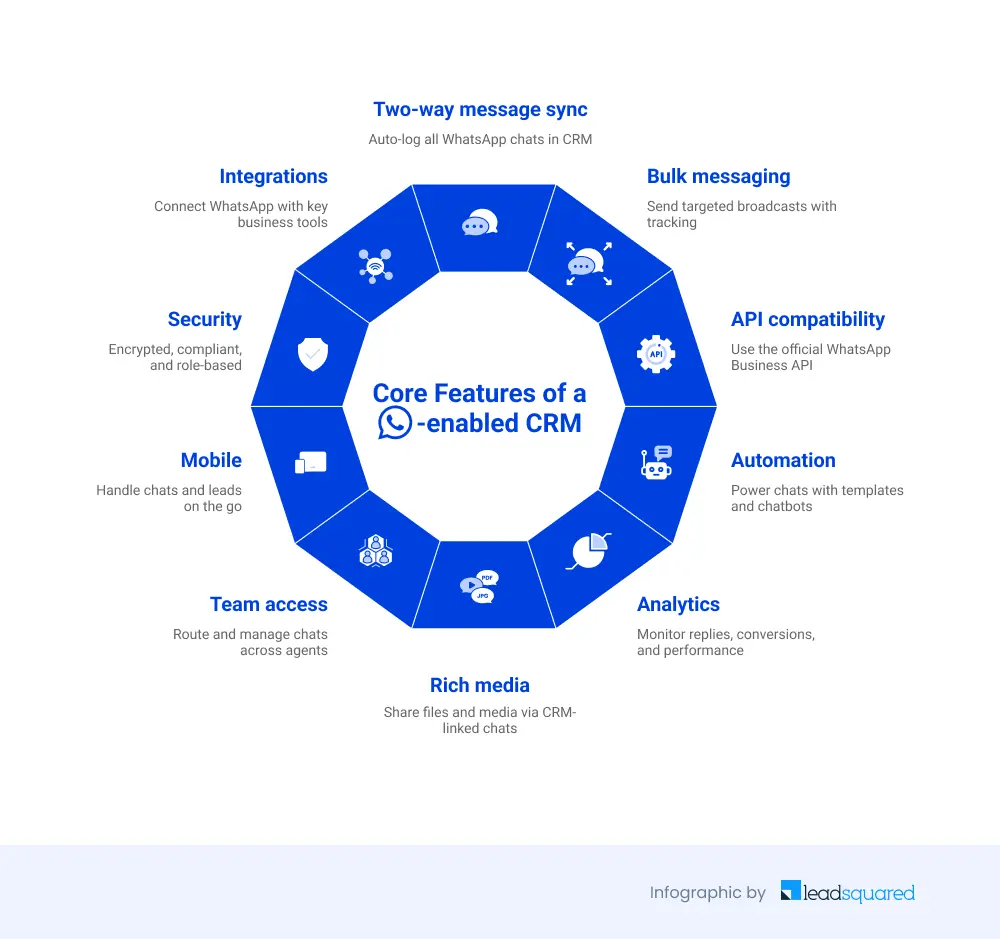
When evaluating the best CRM with WhatsApp integration, look for these essential capabilities:
- Two-way message sync: Every incoming and outgoing WhatsApp message should automatically appear in the CRM without manual logging. The integration must maintain complete conversation threads with proper sender identification, timestamps, and read receipts. Sales reps should be able to send messages directly from the CRM interface, with those messages appearing in the customer’s WhatsApp app seamlessly.
- Bulk messaging and broadcast lists: The ability to send promotional announcements, product updates, or important notifications to segmented customer groups simultaneously. The system should handle contact list management, respect opt-out preferences, and track delivery and engagement metrics for each broadcast campaign. This feature is crucial for businesses managing dealer networks or large customer bases.
- WhatsApp Business API compatibility: Ensure the CRM uses the official WhatsApp Business API rather than unofficial workarounds. API-based integration provides superior reliability, security, compliance with WhatsApp’s terms of service, and access to advanced features like verified business profiles, message templates, and chatbot capabilities. Unofficial integrations risk service disruptions and potential WhatsApp account suspension.
- Templates, chatbots, and API-based automation: Pre-approved message templates ensure consistent, compliant communication for common scenarios like appointment confirmations, payment reminders, or shipping notifications. AI-powered chatbots can handle initial inquiries, qualify leads by asking relevant questions, provide instant answers to frequently asked questions, and escalate complex issues to human agents when necessary. API-based automation enables sophisticated workflows that respond dynamically to customer behavior and CRM events.
- Analytics on message performance and team response times: Comprehensive dashboards should display key metrics including average response time, messages sent and received, conversation-to-lead conversion rates, template performance, and individual team member statistics. These insights enable data-driven optimization of communication strategies and identification of training opportunities.
- Rich media support: The system must handle images, videos, PDFs, and documents seamlessly. Sales teams need to share product photos, demo videos, contracts, invoices, and catalogs directly through WhatsApp conversations, with all shared files automatically attached to the customer’s CRM record.
- Multi-agent access and intelligent routing: For businesses with multiple sales reps or customer service agents, the integration should support team inboxes where conversations can be assigned, transferred, or monitored. Intelligent routing rules should distribute incoming messages based on criteria like customer segment, inquiry type, agent availability, or geographic territory.
- Mobile accessibility: Sales reps work in the field, visiting customer sites and dealer locations. A robust WhatsApp CRM should provide mobile accessibility that enables full conversation management, lead updates, and data access from smartphones or tablets, ensuring productivity regardless of location.
- Security and compliance: Evaluate data encryption standards, user permission controls, conversation logging for audit purposes, and compliance with regulations relevant to your industry and geography (GDPR, FERPA, HIPAA, etc.). For businesses in regulated industries, these considerations are non-negotiable.
- Integration ecosystem: Consider how the WhatsApp CRM connects with your other business systems. Does it integrate with your marketing automation platform, accounting software, e-commerce system, or dealer management solution? Seamless data flow across your technology stack multiplies the value of each individual tool.
Comparing CRM platforms
Several CRM providers offer WhatsApp integration capabilities, each with distinct strengths and ideal use cases:
- LeadSquared stands out for businesses prioritizing quick implementation, industry-specific workflows, and dealer network management. The platform offers native WhatsApp business CRM capabilities with pre-built templates for automotive, manufacturing, education, healthcare, and other sectors. This focus on specific industries reduces configuration time and ensures best practices are embedded from day one.
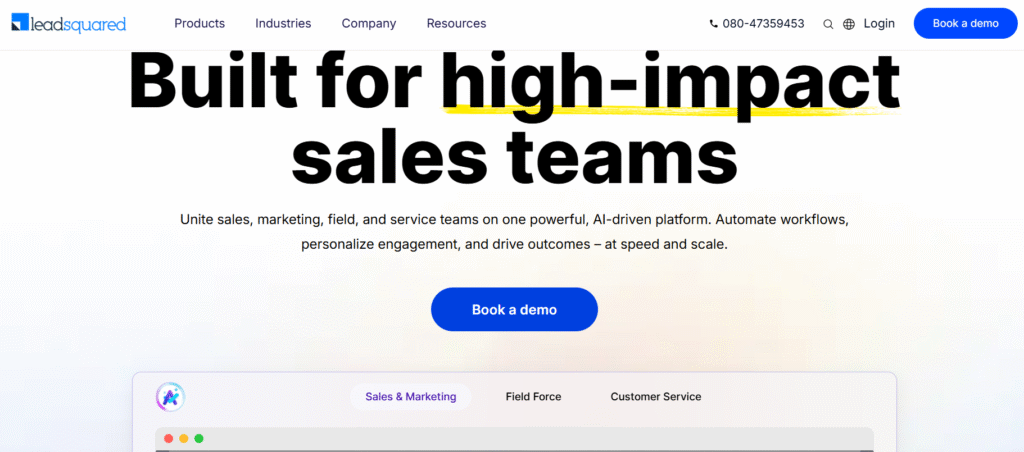
It integrates with WhatsApp as a core communication channel—empowering sales and service teams to engage prospects and customers in real time, right from within the CRM. The platform supports verified WhatsApp Business APIs, automated message workflows, and rich media sharing, helping teams personalize conversations at scale. With unified tracking and analytics, businesses gain complete visibility into customer interactions, ensuring faster responses, stronger relationships, and improved conversion rates—all through a familiar and trusted messaging experience.
Every aspect of customer communication—WhatsApp conversations, email exchanges, phone call logs, website behavior, and in-person interactions—exists within a single customer record accessible to all relevant team members. This unification means sales reps see complete context before responding to WhatsApp messages. They know which website pages the prospect visited, which emails they opened, what questions they asked previously, and which products they’ve shown interest in. This comprehensive visibility enables personalized, relevant responses that move conversations forward efficiently rather than retreading ground already covered. All this makes LeadSquared truly the best CRM with WhatsApp integration.
- HubSpot provides WhatsApp integration through its conversations inbox, suitable for businesses already invested in HubSpot’s marketing and sales tools. The platform excels at inbound marketing integration but may require additional customization for complex dealer networks or industry-specific workflows.
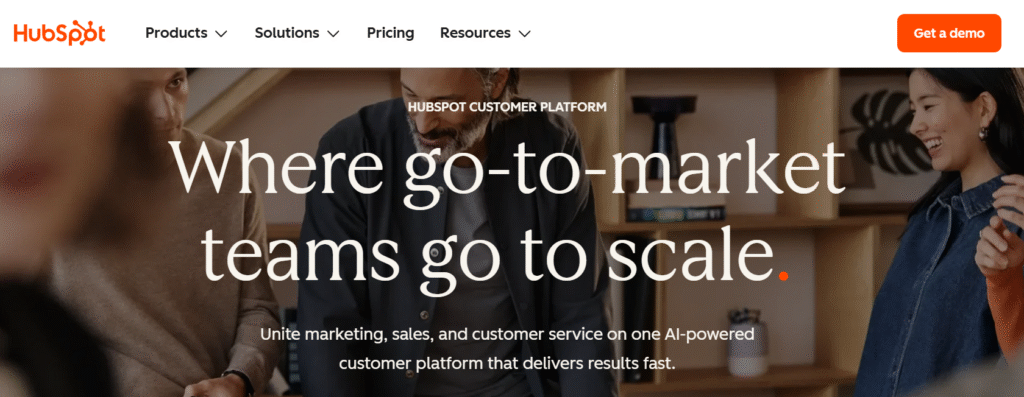
- Zoho CRM offers WhatsApp connectivity through both native features and third-party extensions available in Zoho Marketplace. It provides strong customization options and reasonable pricing but may require technical expertise for sophisticated automation scenarios.
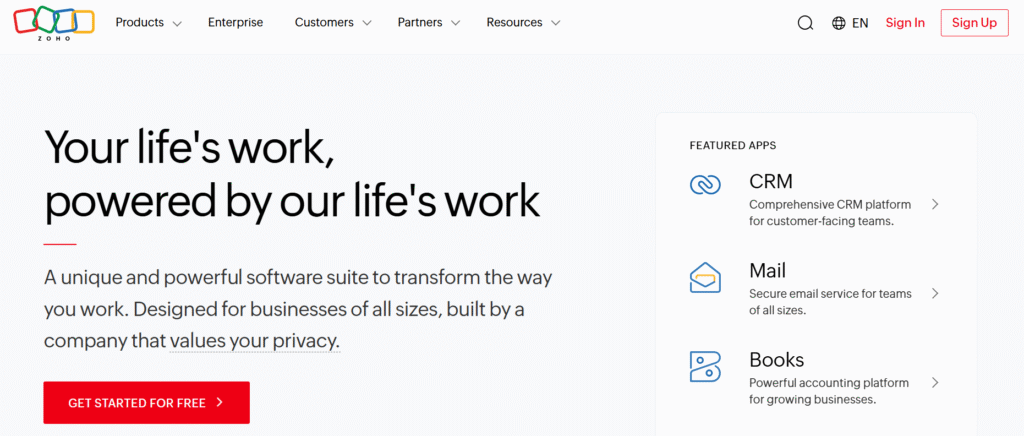
- Salesforce can integrate WhatsApp through AppExchange applications like MessageBird or Twilio. These solutions deliver enterprise-grade functionality and extensive customization but typically involve higher costs and longer implementation timelines suitable for large organizations with dedicated IT resources.
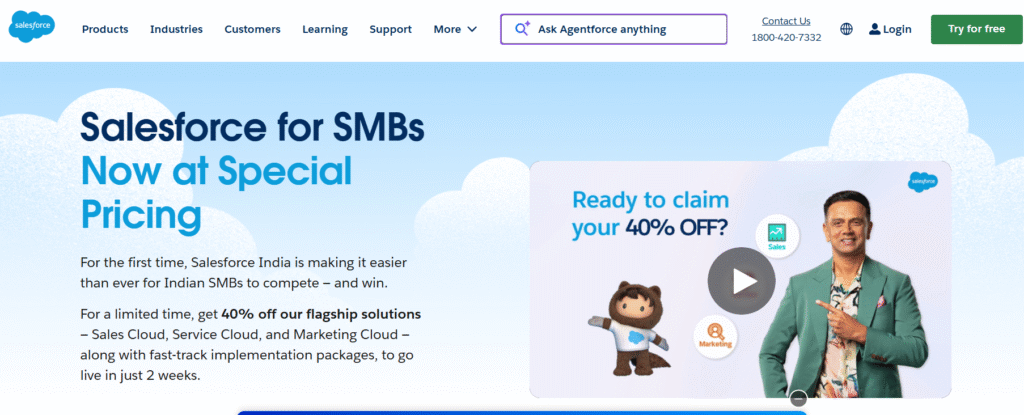
When comparing platforms, request demonstrations using scenarios relevant to your specific business. Evaluate not just feature lists but how intuitively your team can accomplish common tasks. Consider total cost of ownership including implementation services, training, ongoing support, and messaging charges rather than just subscription fees.
Conclusion
With over 2.5 billion active users globally, WhatsApp has evolved from a simple chat app into an essential business communication tool. A WhatsApp business CRM harnesses this massive reach while adding the structure, automation, and intelligence that modern sales organizations require to scale effectively. Whether you’re managing a small sales team or coordinating communications across hundreds of dealers and distributors, CRM WhatsApp integration provides the foundation for efficient, data-driven customer engagement.
No more scattered conversations across personal devices where management lacks visibility. No more manual data entry consuming hours of valuable selling time. No more missed opportunities because inquiries fell through communication gaps. Instead, businesses gain a unified system where every interaction is captured, every follow-up is automated, and every customer experience is optimized.
Experience how LeadSquared’s WhatsApp-integrated CRM helps your teams close deals faster and deliver exceptional customer experiences.
Frequently Asked Questions (FAQs)
What is a WhatsApp CRM?
A WhatsApp CRM is a customer relationship management system that integrates with WhatsApp to capture conversations as CRM records, enable sales teams to send messages directly from the CRM interface, and automate communication workflows. This integration ensures all WhatsApp interactions are tracked within your sales process, providing complete customer visibility and eliminating manual data entry. WhatsApp CRM combines the convenience of instant messaging with sophisticated lead management, automation, and analytics capabilities.
How do I integrate WhatsApp with my CRM?
Integrating WhatsApp with your CRM typically requires using the WhatsApp Business API, which provides official, reliable access to WhatsApp’s business features. Most modern CRM platforms offer either native WhatsApp integration or partnerships with messaging service providers. The integration process generally involves: (1) applying for WhatsApp Business API access, (2) verifying your business with WhatsApp, (3) connecting your CRM platform to the API through built-in connectors or middleware services, and (4) configuring message templates, routing rules, and automation workflows. Many CRM providers offer implementation support to streamline this process.
Which is the best CRM with WhatsApp integration?
The best CRM with WhatsApp integration depends on your specific industry and business requirements. LeadSquared excels for businesses in education, healthcare, financial services, real estate, automotive, manufacturing, distribution, and dealer networks with pre-built workflows and industry-specific templates.
Can car dealerships use WhatsApp CRM?
Yes, car dealerships benefit enormously from WhatsApp CRM integration. Automotive dealerships use WhatsApp CRM to schedule test drives, share vehicle photos and specifications, discuss financing options, send purchase offers, coordinate paperwork, and provide service appointment reminders. The integration enables instant communication with prospects on their preferred messaging platform while maintaining complete conversation history and lead tracking in the CRM. Many dealerships report significant improvements in response times, conversion rates, and customer satisfaction after implementing WhatsApp CRM.
Is WhatsApp integration available for manufacturing businesses?
Absolutely. Manufacturing businesses use WhatsApp CRM integration for dealer network communication, distributor coordination, technical support, service scheduling, and supply chain management. The integration enables manufacturers to broadcast product updates to all dealers simultaneously, provide real-time technical assistance with photo and video support, automate service reminders and warranty notifications, and coordinate with suppliers and logistics partners efficiently. Manufacturing companies with extensive distribution networks particularly benefit from the centralized visibility and automated communication capabilities that WhatsApp CRM integration provides.





